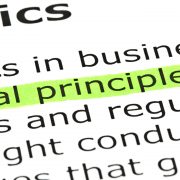There is a reason so many prominent entrepreneurs take a deep interest in the self-improvement genre: It is essential to professional growth and success. And with personal growth comes the power to truly change the world.
Personalities like Tim Ferriss, Tony Robbins, and even the late Dale Carnegie, have all enjoyed immense success in their fields, which makes others seek out their wisdom so that they might replicate it to some degree.
But these wizards of the business world do not focus solely on business advice alone. Instead, they encourage their supporters to spend a great deal of their time improving themselves, so that they may become better innovators.
Many of us are so focused on our desire to change the world that we forget that we must first get our own lives in order to be truly impactful. But therein lies the true beauty of individualism: by improving yourself you will be better suited for success.
Echoing this same sentiment, psychologist Dr. Jordan B. Peterson has been making waves lately by inspiring others to clean up their rooms, before attempting to enact greater change in the world.
Clean up Your Room
In an interview with podcast host Joe Rogan, Dr. Peterson implores listeners to clean their rooms before they attempted to take on greater projects.
During this segment he said:
“…don’t be fixing up the economy, 18-year-olds. You don’t know anything about the economy. It’s a massive complex machine beyond anyone’s understanding and you mess with at your peril. So can you even clean up your own room? No. Well you think about that. You should think about that, because if you can’t even clean up your own room, who the hell are you to give advice to the world?”
This is advice that economic philosophers Leonard Read and Ludwig von Mises would agree with. Since the economy is such a complex mechanism, attempting to centrally plan it is useless, if not completely detrimental. The same is true of our personal lives. How can we give guidance to others if our own lives are not in order?
This is why Peterson suggests the following:
“My sense is that if you want to change the world, you start from yourself and work outward, because you build your competence that way.”
This sentiment expressed by Peterson is similar to that of Joseph Campbell, who made popular the concept of the hero’s journey. The hero’s journey is a celebration of individualism and the impact we can have on the world by overcoming our own challenges.
Campbell said:
“We’re not on our journey to save the world but to save ourselves. But in doing that, you save the world. The influence of a vital person vitalizes.”
So many of us are eager to tell others what to do when in many instances, we haven’t even taken our own own advice. But by making a concerted effort to tackle adversity one small step at a time, we can gain the courage and the skills necessary to take on bigger projects.
Peterson Continues:
“The world presents itself as a series of puzzles some of which you’re capable of solving and some of which you’re not. You have many puzzles in front of you that you could solve but you choose not to. Those are the things that weigh on your conscience. It’s like ‘I should really do this,’ but you don’t…
…you consult your conscience and it says, ‘Well, you know, that place over there could use a little work.’ It’s the same as working on yourself. And so you clean that up, because you can. And then things are a little clearer around you. And you’re a little better off, because you’ve practiced a bit. And so you’re a little stronger. And then something else manifest itself and says, ‘Well maybe you can take a crack at fixing me too.’ So you decide to do that and that gets a little more pristine.”
In another speech on the same topic, he finishes this train of thought by saying:
“…and then maybe you’ll learn enough by doing that so that you can fix up your family a little bit, and then having done that, you’ll have enough character so that when you try to operate in the world, at your job, or maybe in the broader social spheres, that you’ll be a force for good instead of harm…”
While this may seem like simple advice, it is wisdom that has lost its merit over the years. Many people expect success to be handed to them simply because they want it. But success without growth is meaningless.
Whether it be in politics or the business world, if you want to make a true, lasting impact on the world, you must start by looking within first. By changing yourself before seeking to have a grander impact on the world, you are a true individualist.













